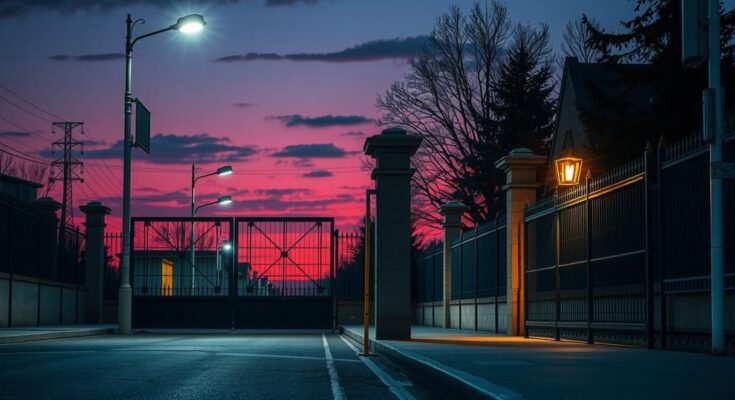South Sudan has enacted a nationwide curfew following deadly riots in Juba sparked by alleged killings of South Sudanese by Sudanese forces. The unrest led to several fatalities and injuries as rioters targeted Sudanese-owned businesses. The government is taking measures to protect Sudanese nationals and restore order after recent tensions linked to Sudan’s ongoing civil conflict.
South Sudan has implemented a nationwide curfew from 6 p.m. to 6 a.m. following riots in Juba that erupted over alleged killings of South Sudanese individuals by armed forces in neighboring Sudan. The police chief, Abraham Peter Manyuat, announced the curfew on state television, asserting that it would remain in effect until further notice to help restore security and protect property. He emphasized that any violations would not be tolerated by the authorities.
The riots resulted in at least three fatalities and several injuries, occurring as youths in Juba’s suburbs vandalized and looted businesses owned by Sudanese nationals. Further unrest was reported in Aweil, where properties belonging to Sudanese individuals were set ablaze. In response to increasing violence, security forces are evacuating Sudanese citizens to ensure their safety amid fears of attacks from rioters.
These disturbances were triggered by accusations against the Sudanese military and its allies for the alleged targeted killings of South Sudanese in Sudan’s El Gezira region. As a reaction to the violence, South Sudan’s foreign ministry summoned the Sudanese ambassador, while President Salva Kiir urged calm members of his nation. His office stated that it is essential to refrain from allowing anger to influence one’s judgment against Sudanese traders and refugees residing in South Sudan.
The recent unrest in South Sudan is exacerbated by ongoing tensions following incidents in Sudan, where reports of killings of South Sudanese individuals have ignited anger. This situation is further complicated by the ongoing civil war in Sudan involving the military and the rebel group Rapid Support Forces. The historical relationship between Sudan and South Sudan, which gained independence from Sudan in 2011, continues to shape the dynamics and responses to violence, with heightened sensitivities surrounding ethnic and political affiliations.
In summary, the implementation of a curfew by South Sudan authorities is a direct response to unrest driven by anger over killings in Sudan. The riots not only involved physical violence but also demonstrated the fragile relationship between South Sudan and its neighboring country. Authorities are emphasizing the importance of maintaining peace and ensuring the safety of all residents, irrespective of their nationality, while seeking to restore order.
Original Source: dunyanews.tv




